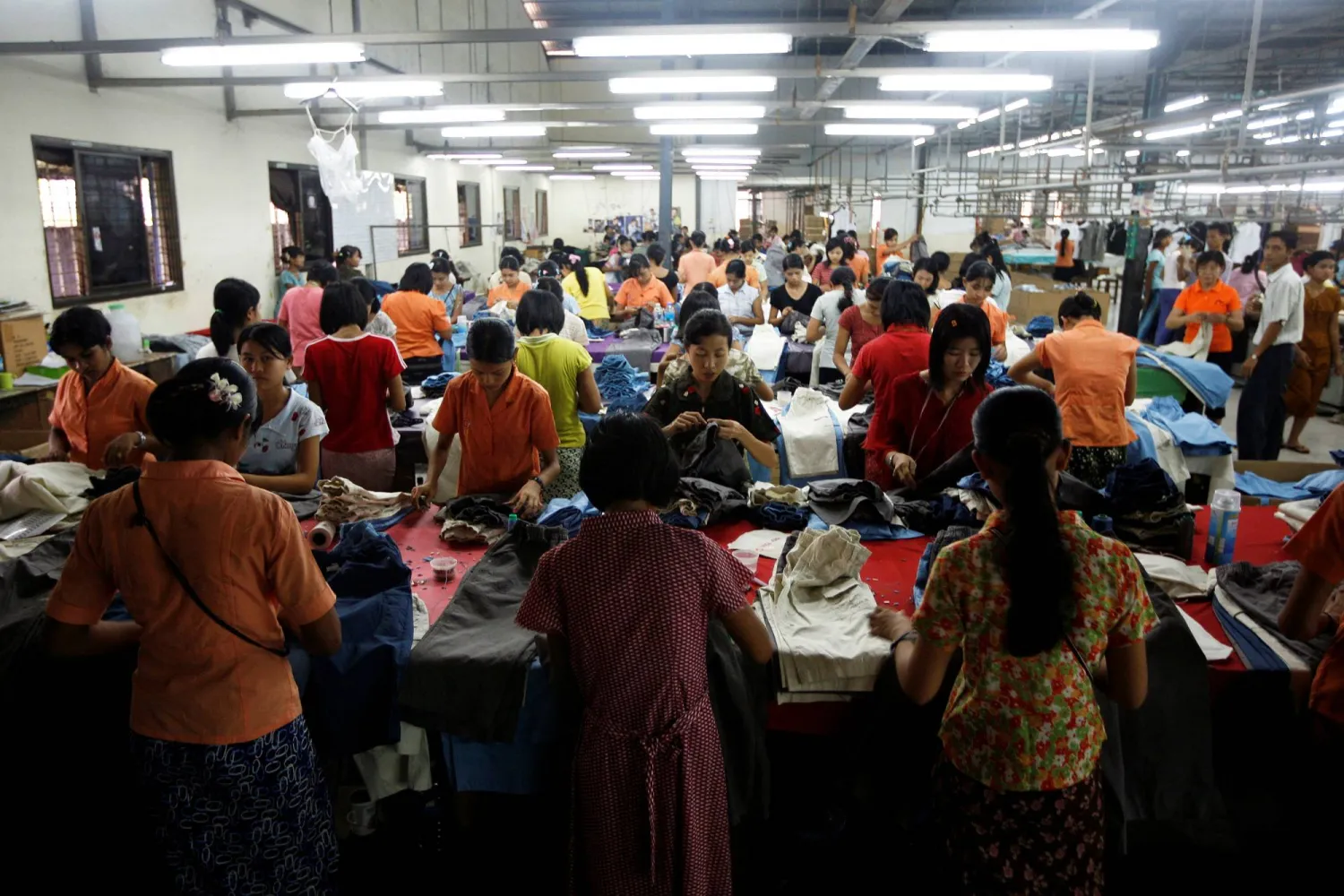The world's second-biggest fashion retailer, H&M, has decided to gradually stop sourcing from Myanmar, it told Reuters on Thursday, as reports of labor abuses in garment factories in the country increase.
H&M became the latest brand to cut ties with suppliers in the country after Zara owner Inditex, Primark, Marks & Spencer and others. Some experts say the trend could ultimately leave workers in the country worse off.
"After careful consideration we have now taken the decision to gradually phase out our operations in Myanmar," H&M said in an email to Reuters.
"We have been monitoring the latest developments in Myanmar very closely and we see increased challenges to conduct our operations according to our standards and requirements."
Myanmar government spokesman Zaw Min Tun was not immediately available to comment on H&M's announced exit.
H&M said on Wednesday it was investigating 20 alleged instances of labor abuse at Myanmar garment factories that supply it, as a UK-based NGO said cases of alleged abuses including wage theft and forced overtime have multiplied since a military coup in February 2021.
The coup plunged Myanmar into an ongoing political and humanitarian crisis.
The garment sector is a key employer in the Southeast Asian country, where mostly women workers produce clothes and shoes for major brands in more than 500 factories.
"I regret H&M’s announcement, as it will have a negative impact on thousands of women workers in Myanmar," said Vicky Bowman, director of the Myanmar Center for Responsible Business and former British ambassador to Myanmar.
H&M said its exit would follow a "responsible exit framework" developed by IndustriALL, a global union that has been campaigning for brands to stop doing business in the country, and that was cited by Inditex as a reason for its withdrawal.
H&M Says it Will 'Phase Out' Sourcing from Myanmar

FILE PHOTO: Workers tailor and arrange clothing at a garment factory at Hlaing Tar Yar industry zone in Yangon March 10, 2010. REUTERS/Soe Zeya Tun/File Photo

H&M Says it Will 'Phase Out' Sourcing from Myanmar

FILE PHOTO: Workers tailor and arrange clothing at a garment factory at Hlaing Tar Yar industry zone in Yangon March 10, 2010. REUTERS/Soe Zeya Tun/File Photo
لم تشترك بعد
انشئ حساباً خاصاً بك لتحصل على أخبار مخصصة لك ولتتمتع بخاصية حفظ المقالات وتتلقى نشراتنا البريدية المتنوعة







